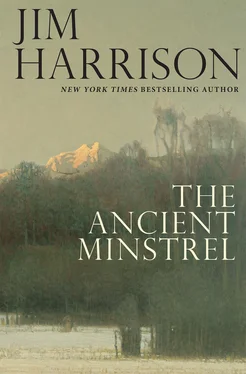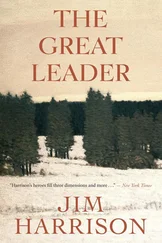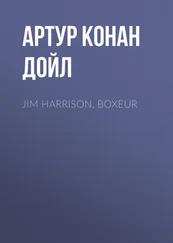“How do you know? Maybe it’s sex.”
“They don’t think about sex in advance like us. They just do it,” he said with a bit too much authority.
“Now you’re a swine psychiatrist?” she said with a withering touch. She left for her garden.
Walter and Aristo had returned to the mud hole with gusto, their eyes blinking out below muddy brows. He picked up Marjorie who was pretty clean thanks to some still dry straw in a corner. Of all the piglets she liked most to be touched. He picked her up in his arms and she collapsed against his body as if they were lovers. He bathed her gently and put some fresh straw in her corner. She curled up in pleasure to dry off. She fluttered her eyes at him and he couldn’t help but wink. He took a little stroll with Marjorie and scratched her tummy.
Later he sat at his desk wanting very much to write a poem about piglets, not a comic poem. It would have to be a private poem for his eyes only because you need only to utter the word “pig” and some people would begin chuckling in their superiority. Pigs were of course edible but contemptible. He seethed in resentment in defense of pigs. The human race shits in its pants for at least the first year. Who else laughs in ridicule of fellow creatures? How could he write a poem if he was angry? Historians said that pork fueled the western movement. Without pigs there would be no west coast. Pigs would follow the wagon trains, their minds on a little corn for dinner. They would root for edible vegetables while cattle would wander off with their eyes on greener pastures.
He made a number of false starts on his pig poem then was so exhausted he drove to the saloon in town. Poetry does this to us. You can quickly either soar or drown in depression. You can have a pretty good first line but not a strong enough thought to tag along more lines and sometimes in the middle words become bored and make war on one another. Notebooks are full of these fragments, shrapnel of our intention. Life is short on conclusions and that’s why it’s often a struggle to end a poem. Some are lost forever. Sometimes you walk around with versions of a poem in your head that won’t come clean. You are enslaved to this language of disorder and can brood upon it for days and weeks. When the poem finally does work, your spirit soars and you forget the difficulty, like you forget pain afterward. Some of the extreme behavior you see in the poet species is likely attributable to these struggles. When the brain spends this much time enfevered it is liable to affect the behavior which for a long period was a common joke around academia.
In down times of near clinical depression he wondered why he’d chosen this calling. Back at age fourteen when he was obsessed with Keats it seemed glorious despite the bad reviews Keats received during his short life. And Lord Byron had an enviable career of adventure and women, travel and women, poetry and women. And there was his beautiful rage when the Church of England wouldn’t allow him to be laid to rest with his dog. If the minstrel couldn’t be buried with his dog, he thought, he’d refuse to be buried. Just stick his body up in a tree and let him dry out in the wind. Pour out some good wine for the tree’s thirsty roots. The nobility of dogs is unquestionable compared with men. He meant at some point to write a novella called “The Dogs of Jesus.” Maybe it would be in the voice of the dog who was with him for his forty days in the wilderness.
Ralph, another wine-drinking neighbor in town, over a bottle of Châteauneuf-du-Pape had described rather too eloquently how writers make up their lives with language and then are obligated to live them. They are absurdly autonomous. He felt resentment over this easygoing indictment and reacted with a brisk, “How do you know?” But Ralph did know and said he had published two novels and a book of poetry in his twenties and then quit in a state of boredom with himself. This seemed unlikely but Ralph admitted he should have held on because writers had the advantage of surprise in life. They got to discover what they were going to write next. Ralph’s father as a hard-ass business executive wouldn’t support him as a writer but the money would keep coming if he took a Ph.D. which back then would ensure future employment. His father had come to maturity in the Depression and was a maniac worrying about money. And so Ralph took a Ph.D. which required years of semi-indolence. He studied the medieval literature of Europe for which he had no real passion but its distance from his emotional life made it safe. Only it wasn’t. He became fascinated with the jongleurs, the medieval French poet minstrels who worked outside the Church and became a symbol of ultimate freedom in an authoritarian society. In a way they were bums living by their wits with an Indian trickster’s ability. He stayed in Montpellier for years, learned the difficult language of the poets, and lived down the street from the university where the great Rabelais had been educated in the sixteenth century. He was enamored with southern France in the 1950s with so many of the remains of the war visible. People were happy just to be alive. His professors were a bawdy and good-humored group of ex-officers with totally laissez-faire attitudes toward him as an academic. When millions die around you who gives a shit? Ralph himself became his own kind of jongleur and always carried himself lightly. When he married a French girl it was a very good marriage but she died giving birth to their only daughter. To the disappointment of her parents he raised the daughter in the countryside of North Carolina. They tried to get a legal injunction against him taking the daughter out of France but it wasn’t possible. They visited America every year to see their only grandchild. He had inherited a generous amount of money from his obnoxious father. He would take them all to a resort on vacation after doing research to make sure the food was good. The elderly French couple liked a dude ranch near Livingston, Montana, which was how Ralph had ended up there, and once when he screwed up dates for summer flights they came in December and they all stayed at a dude ranch near Patagonia, Arizona, where winter was sunny and passably warm.
During his early pig obsession he had missed the wine and company of his neighbors.
He sat in front of the studio in his cheap white plastic chair and stared as he always did at his wife’s vegetable and flower garden. She grew the two together. A simple plot of vegetables but the mixture of flowers made it lovely.
His problems were immense. It was May and the piglets were all over forty pounds. Zack came over and they enlarged the pen. None of the piglets were glad to see them anymore unless they were bringing food. He was distressed and he said to Zack, “What do I do now?” and Zack replied, “Lots of parties now at the end of the university semester. Sell them for pig roasts on the hoof.” He made Zack a fine deal that if he sold the pigs he could keep half the money. He decided to keep Marjorie and of course the old sow no one would want. The next day he saw the ad Zack had called in to the university newspaper that began with, “The best pork you will ever put in your mouth. Perfect size for roasting.” Two days later Zack came over with his pickup the back of which was covered with a truck cap. He was a big strong former farm kid and loaded the piglets except for Shirley who he had to half strangle to get into the back of the truck. She nipped his hand pretty hard. “Got ’em all sold except for one. I’ll cook that one myself. You’ll be invited.” He said, “No thanks,” with a ghastly lump in his throat. How could he eat one of his pets? He was truly an amateur as a farmer.
Now that he had raised pigs the only consequential fantasy of his youth left to him was to live in France. He had saved all his earnings from age thirteen to eighteen to live in France, thirteen hundred dollars in all. A scoundrel eye doctor checking his sight said that he might be able to restore some sight in his blind left eye. His parents had no insurance that would cover this previous injury and no money what with a modest salary and five children. Being able to see out of the left eye was a more immediate temptation than France so when the surgeon asked what kind of money he could raise he stupidly said thirteen hundred. The surgeon said he would do the operation at that discounted price plus throw in a contact lens to help it work. It didn’t work at all and the lens also was worthless and painful. He threw it out in the swamp behind the house. He was destined to always see a dense fog bank, unconsoled when he discovered that holding the lids open he could see a small light in the sky. He had spent his life savings for France on an utter failure. Later on another eye doctor said the surgery was “criminal.”
Читать дальше












